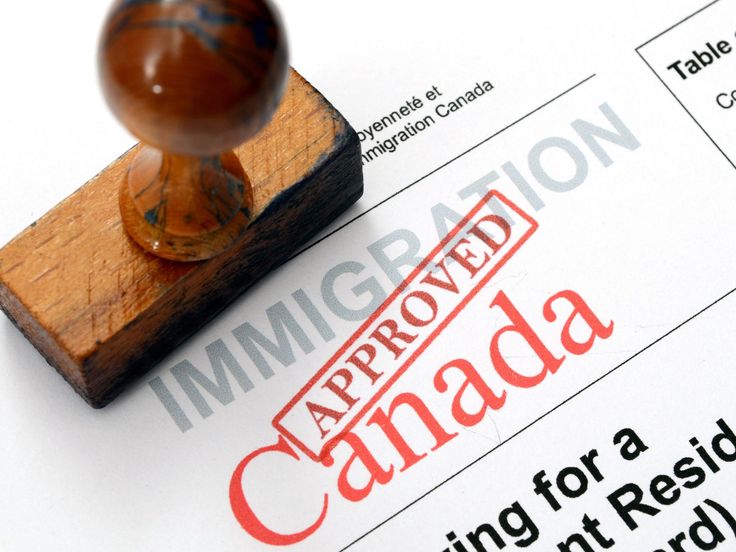How to Relocate to Canada Without a University Degree
Relocating to Canada is a dream for many individuals seeking better opportunities, a higher quality of life, and a welcoming environment. While having a university degree can open many doors, it is not the only pathway to immigrating to Canada. This comprehensive guide will explore various strategies, job opportunities, and resources to help you relocate to Canada without a university degree. By integrating relevant topics and backlinks, you’ll gain a holistic understanding of the immigration process and the opportunities available to you.
Find your Eligibility for FREE!!
Understanding Canada’s Immigration System
Canada’s immigration system is designed to attract a diverse range of individuals, including those with various skill levels and educational backgrounds. The system is points-based, evaluating candidates on factors such as age, work experience, language proficiency, and adaptability. Even without a university degree, you can accumulate points through other qualifications and experiences, making it possible to immigrate to Canada.
Express Entry Program
The Canadian Express Entry Program is one of the most popular and efficient pathways for immigrants. It manages applications for three economic immigration programs: the Federal Skilled Worker Program, the Federal Skilled Trades Program, and the Canadian Experience Class. While the Federal Skilled Worker Program often requires a degree, the Federal Skilled Trades Program and the Canadian Experience Class offer opportunities for those with skilled work experience.
To apply for the Express Entry Program, you need to create an online profile, which will be ranked based on the Comprehensive Ranking System (CRS). A higher CRS score increases your chances of receiving an Invitation to Apply (ITA) for permanent residency. Factors that can boost your CRS score include language proficiency, work experience, and a job offer from a Canadian employer.
Provincial Nominee Programs (PNPs)
Provincial Nominee Programs (PNPs) are another excellent pathway for those without a university degree. Each Canadian province and territory has its own PNP, designed to meet specific labor market needs. PNPs often have streams tailored for semi-skilled workers, caregivers, and those with job offers in the province. For example, provinces like Alberta, Saskatchewan, and Manitoba have streams that target specific occupations in demand, such as truck drivers, construction workers, and caregivers. These programs can significantly boost your chances of obtaining permanent residency.
Temporary Foreign Worker Program
The Temporary Foreign Worker Program allows employers in Canada to hire foreign workers to fill temporary labor and skill shortages. Obtaining a work permit through this program can be a stepping stone to permanent residency. Some jobs that often qualify for this program include fruit pickers, warehouse workers, and care assistants. These positions often come with visa sponsorship, making it easier to immigrate and gain work experience in Canada.
Atlantic Immigration Pilot
The Atlantic Immigration Pilot is designed to attract and retain skilled workers and international graduates in the Atlantic provinces (New Brunswick, Prince Edward Island, Nova Scotia, and Newfoundland and Labrador). This program has more lenient requirements and can be an excellent option for those without a university degree but with relevant work experience. The pilot program offers a pathway to permanent residency for individuals with a job offer from a designated employer in the Atlantic region.
Job Opportunities in Canada Without a Degree
Canada offers a wide range of job opportunities that do not require a university degree. These jobs can provide a pathway to permanent residency and a stable income. Here are some of the top jobs in Canada that do not require a degree, along with relevant resources and backlinks to help you explore your options:
1. Truck Drivers
Truck drivers are in high demand across Canada, with many provinces offering visa sponsorship for this occupation. The job involves transporting goods over long distances and requires a commercial driver’s license. Truck driving can be a lucrative career, with opportunities for growth and stable employment. To learn more about truck driver jobs with visa sponsorship, visit Truck Driver Jobs in Canada with Free Visa Sponsorship.
2. Construction Workers
The construction industry is booming in Canada, with numerous opportunities for skilled tradespeople. Jobs in this sector often come with visa sponsorship, making it easier to obtain a work permit and eventually permanent residency. Construction workers can specialize in various trades, such as carpentry, plumbing, and electrical work. For more information on construction jobs with visa sponsorship, check out Construction Jobs in Canada That Offer Work Visa Sponsorship.
3. Caregivers
Caregiver jobs are another excellent option for those without a degree. Canada has a high demand for caregivers, and many positions come with visa sponsorship. Caregivers provide care and support to children, the elderly, or individuals with disabilities. To learn more about caregiver jobs and how to apply, visit Caregiver Jobs in Canada with Visa Sponsorship.
4. Farm Workers
Agriculture is a significant industry in Canada, and there is a constant need for farm workers. Many farms offer visa sponsorship for foreign workers, making it a viable pathway to immigration. Farm workers can specialize in various areas, such as crop farming, livestock farming, and agricultural machinery operation. For more information on farm worker jobs with visa sponsorship, check out Farm Worker Jobs in Canada for Foreigners with Work Visa Sponsorship.
5. Factory Workers
Factory jobs are available across various industries in Canada. Many factories offer visa sponsorship for foreign workers, providing an opportunity to gain work experience and potentially obtain permanent residency. Factory workers can specialize in areas such as manufacturing, assembly, and quality control. For more information on factory jobs with visa sponsorship, visit Factory Jobs in Canada with Free Work Visa for Immigrants.
6. Hotel Staff
The hospitality industry in Canada is thriving, with numerous opportunities for hotel staff. Many hotels offer jobs with visa sponsorship, making it easier to immigrate and find stable employment. Hotel staff can work in various roles, such as front desk, housekeeping, and food service. To learn more about hotel jobs with visa sponsorship, check out Hotels Offering Jobs in Canada with Free Visa Sponsorship.
7. Pet Care Jobs
Pet care jobs, such as dog training and pet care assistants, are in demand in Canada. These jobs often come with visa sponsorship and can provide a pathway to permanent residency. Pet care workers provide care and support to animals, ensuring their health and well-being. For more information on pet care jobs in Canada, visit Pet Care Jobs in Canada and Salary in 2024/2025.
8. Warehouse Workers
Warehouse jobs are available across Canada, with many positions offering visa sponsorship. These jobs involve managing inventory, packing orders, and ensuring the smooth operation of the warehouse. Warehouse workers can specialize in areas such as logistics, supply chain management, and inventory control. For more information on warehouse worker jobs in Canada, visit High Paying Warehouse Worker Jobs in Canada.
Improving Your Chances of Getting Hired in Canada
To improve your chances of getting hired in Canada, consider the following tips and strategies:
1. Enhance Your Language Skills
Proficiency in English or French is crucial for finding employment in Canada. Consider taking language courses or obtaining certifications such as IELTS or TEF to demonstrate your language skills. Strong language skills can significantly boost your employability and help you integrate into Canadian society. For more information on obtaining a Canadian work permit without IELTS, visit How to Get a Canadian Work Permit Without IELTS.
2. Gain Relevant Work Experience
Relevant work experience can significantly boost your chances of getting hired. Look for opportunities to gain experience in your desired field, even if it means starting with entry-level positions. Volunteering, internships, and part-time jobs can also provide valuable experience and help you build a strong resume.
3. Network and Build Connections
Networking can open doors to job opportunities and provide valuable insights into the Canadian job market. Join professional organizations, attend industry events, and connect with professionals in your field. Utilize social media platforms, such as LinkedIn, to build connections and showcase your skills and experiences.
4. Tailor Your Resume and Cover Letter
Customize your resume and cover letter for each job application, highlighting your relevant skills and experiences. Make sure to use keywords from the job posting to increase your chances of passing applicant tracking systems. A well-crafted resume and cover letter can help you stand out from other candidates and secure job interviews.
5. Leverage Online Job Portals
Utilize online job portals to find job openings and apply for positions. Websites like Indeed, LinkedIn, and specialized job boards can be valuable resources for finding employment in Canada. For more information on the best websites to find job openings in Canada, visit Best Websites to Find Job Openings in Canada for Foreign Workers.
6. Consider Seasonal Work
Seasonal work can provide a pathway to permanent residency and offer valuable work experience. Jobs such as fruit picking, tourism, and hospitality often come with visa sponsorship and can be a great way to start your career in Canada. For more information on seasonal work opportunities, visit Fruit Picker Jobs in Canada with Free Visa Sponsorship.
7. Explore Care Assistant Jobs
Care assistant jobs are in high demand in Canada, with many positions offering visa sponsorship. These jobs involve providing care and support to individuals in need, such as the elderly or those with disabilities. Care assistant jobs can be a rewarding career path and offer opportunities for growth and advancement. For more information on care assistant jobs in Canada, visit Care Assistant Jobs in Canada $37k Per Year.
Finding Accommodation and Settling in Canada
Finding affordable accommodation is a crucial step in your relocation process. Here are some tips to help you find suitable housing and settle in Canada:
1. Explore Temporary Housing Options
Consider temporary housing options such as hostels, Airbnb, or short-term rentals while you search for a more permanent residence. Temporary housing can provide flexibility and allow you to explore different neighborhoods before committing to a long-term lease. For more information on affordable temporary housing options in Canada, visit Affordable Temporary Housing Options for Immigrants in Canada.
2. Research Cheap Apartments
Look for cheap apartments in your desired city or town. Utilize online platforms and local classifieds to find affordable rental options. Consider factors such as location, amenities, and lease terms when searching for an apartment. For more information on finding cheap apartments in Canada, visit Finding Cheap Apartments in Canada as a New Immigrant: A Comprehensive Guide.
3. Consider Living in Cheaper Cities
Some cities in Canada are more affordable than others. Research the cheapest cities to live in and consider settling in one of these locations to save on living expenses. Factors to consider include cost of living, job opportunities, and quality of life. For more information on the cheapest cities to live in Canada, visit Cheapest Cities in Canada to Live as a New Immigrant.
4. Utilize Government Assistance Programs
Canada offers various government assistance programs for new immigrants, including housing support, employment services, and language training. These programs can provide valuable resources and support as you settle in Canada. For more information on government assistance programs for new immigrants, visit Government Assistance Programs for New Immigrants in Canada.
Pathways to Permanent Residency
Obtaining permanent residency is the ultimate goal for many immigrants. Here are some pathways to achieve this:
1. Canadian Experience Class
The Canadian Experience Class is designed for individuals with skilled work experience in Canada. This program allows temporary foreign workers and international students to apply for permanent residency. To qualify, you must have at least 12 months of full-time skilled work experience in Canada within the last three years.
2. Spouse or Partner Sponsorship
If you have a spouse or partner who is a Canadian citizen or permanent resident, they can sponsor you for permanent residency. This pathway requires proof of a genuine relationship and financial support. For more information on obtaining a spouse visa to Canada through marriage, visit How to Get a Spouse Visa to Canada Through Marriage.
3. Caregiver Programs
Caregiver programs, such as the Home Child Care Provider Pilot and the Home Support Worker Pilot, offer a pathway to permanent residency for caregivers with eligible work experience in Canada. These programs allow caregivers to apply for permanent residency after completing a specific period of work experience.
4. Provincial Nominee Programs
As mentioned earlier, PNPs can significantly boost your chances of obtaining permanent residency. Each province has its own requirements and streams, so research the programs in your desired province. PNPs often have streams tailored for semi-skilled workers, caregivers, and those with job offers in the province.
5. Atlantic Immigration Pilot
The Atlantic Immigration Pilot offers a pathway to permanent residency for individuals with a job offer from a designated employer in the Atlantic region. This program has more lenient requirements and can be an excellent option for those without a university degree but with relevant work experience.
Alternative Pathways to Canada
In addition to the pathways mentioned above, there are alternative ways to relocate to Canada without a university degree:
1. Marriage Visa
Marrying a Canadian citizen or permanent resident can provide a pathway to permanent residency. There are several ways to obtain a Canada marriage visa, including spousal sponsorship and common-law partner sponsorship. For more information on obtaining a Canada marriage visa, visit 5 Ways to Get a Canada Marriage Visa.
2. Study in Canada
While this guide focuses on relocating to Canada without a university degree, studying in Canada can also provide a pathway to permanent residency. Many colleges and universities offer programs that do not require a high school diploma or equivalent. Additionally, some scholarships cover tuition and visa sponsorship, making it easier to study and work in Canada. For more information on scholarships in Canada, visit Scholarships in Canada That Cover Tuition & Visa Sponsorship.
3. Visa Sponsorship Jobs
Many jobs in Canada come with visa sponsorship, making it easier to immigrate and gain work experience. Some of the top countries for visa sponsorship jobs include Canada, the United States, and Australia. For more information on visa sponsorship jobs, visit Top Countries for VISA Sponsorship Jobs.
4. Apply for a Canadian Work Visa Without a Job Offer
While having a job offer can significantly boost your chances of obtaining a work visa, it is possible to apply for a Canadian work visa without a job offer. This pathway requires demonstrating your intention to work in Canada and your ability to support yourself financially. For more information on applying for a Canadian work visa without a job offer, visit How to Apply for a Canadian Work Visa Without a Job Offer.
Conclusion
Relocating to Canada without a university degree is a feasible and exciting opportunity. By exploring various immigration pathways, enhancing your skills, and leveraging available resources, you can successfully immigrate to Canada and build a new life. This comprehensive guide has provided you with valuable insights and strategies to help you navigate the immigration process and find suitable employment in Canada.
By integrating relevant topics and resources, you can further explore your options and make informed decisions about your relocation journey. Remember to stay informed about the latest immigration policies and job opportunities to maximize your chances of success. With determination, perseverance, and a well-planned strategy, you can achieve your dream of relocating to Canada and building a prosperous future. Good luck, and welcome to Canada!







